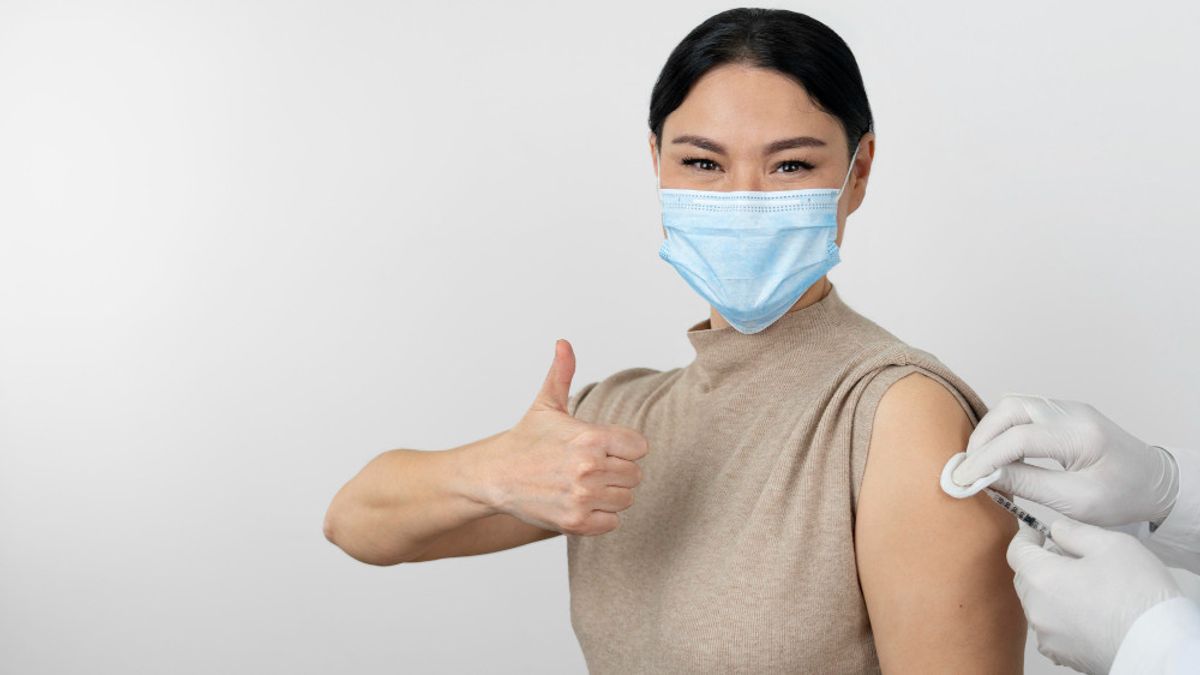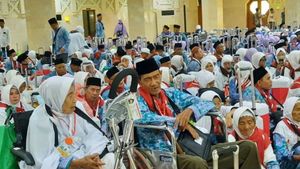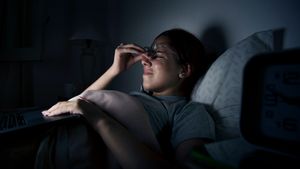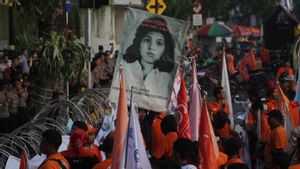
YOGYAKARTA - Have you heard the term IPV immunization or have you lived it? This time we will discuss the IPV immunization rules. Follow the description in this baah.
To obtain a healthy body in a physical manner, of course, we must protect our physical health so that we are free from all types of disease viruses that can infect our bodies. One of the initial efforts to take action against our body from the virus is to carry out immunizations that generally have started from an early age. By carrying out immunization, we have made our immune system stronger to fight disease viruses that can attack our bodies at any time.
One of the immunizations that we must undergo is the immunization of IPV or better known in general as polio immunization. IPV immunization is given to early childhood to avoid children from contracting the polio virus. Polio is a disease caused by inflammation of the polio virus. The spread of this virus generally takes place through the consumption of water or food contaminated with polio virus or through direct contact with polio impurities.
Immunization of IPV is the immunization given as the purpose of preventing the polio virus. What is polio? Polyo (polymyelitis) itself, namely a disease that paralyzes and even threatens a person's life due to the virus.
This vaccine has a random category of polio virus strains, each of which has been shut down using a formalin. Thus, this virus that is no longer alive is able to create antibodies in the body to avoid the virus entering the central nervous system.
Immunization of IPV shows protection against polio, which can lead to paralysis and death.
Not only to follow the IPV immunization schedule, children who will travel abroad during the greater risk of polio must complete a series of immunizations before leaving for a long trip.
IPV immunization works with the method of making antibodies in the bloodstream that works to prevent the polio virus. The goal is to protect the body from the polio virus or the poliomyelitis paralytic.
This polio virus is contagious and spreads from one person to another using the method of infecting the spinal cord as a result of being able to cause paralysis (the body cannot move at all).
The polio vaccine is a vaccine that is given to avoid polio. There are 2 types of polio vaccines, namely a vaccine containing an inactive polio virus that is injected into the body or a vaccine containing a weakened polio virus which has been given verbally.
Launching from, The World Health Organization recommendations all children be fully vaccinated against polio. These two vaccines have eradicated polio globally and have reduced the number of problems to 350,000 in 1988 to 22 in 2017 alone.
The polio vaccine containing a virus that is already inactive is very conducive for patients. Redness or pain can be at the injection site. Meanwhile, the polio vaccine given verbally is estimated to cause 2 to 4 problems with polymyelitis of paralysis related to using vaccines (English: vaccine-assocized paralytic poliomyelitis) for every million doses given.
In comparison, 5,000 out of one million people infected with polio will be paralyzed. Both of these vaccines are conducive to be given during two-body time and for HIV/AIDS sufferers.
The first polio vaccine developed was a polio vaccine containing a virus that was already inactive. This vaccine was developed by Jonas Salk and began to be used in 1955. The polio vaccine, which was given verbally, was developed by Albert Sabin and started commercially in 1961.
This vaccine is included in the World Health Organization's Essential Drug List. In 2014, wholesale ports in developing countries ranged from US$0.25 per dose for vaccines given verbally. In the United States, the costs range from $25 to $50 for injected vaccines.
관련 항목:
What Is Immunization IPV
As previously explained, polio vaccination is one of the vaccines that must be done to avoid infection and the spread of the polio virus. However, before giving your child a polio vaccine, there are several things that parents must pay attention to, namely:
If your child had a severe allergic reaction when receiving the polio or IPV vaccine, he was also advised to end receiving the IPV. Not only that, children who are allergic to antibiotics based on polymicsin B, streptomycin, and neomisine should also not receive polio vaccines.
2. Postponement of Vaccination if Children Are Seriously Sick
If children are seriously ill, such as repeated vomiting or diarrhea, and do not appear to be active at all, polio vaccination can be postponed until they completely recover.
So far, children often experience mild illness, such as colds, coughs, and mild fever, especially if the child is still eating and looks active, vaccination is still allowed.
Immunization with IPV or OPV is really safe. However, it should first consult a doctor to see if your child's condition meets the provisions for giving the polio vaccine.
Not only polio vaccines, the schedule for vaccination for children must also always be observed so that endurance is always healthy and free from disease.
In addition, we also provide an article 'How to Get a Child Immunization Certificate' to make it easier for you in the interests of administration.
So after knowing the IPV immunization rules, see other interesting news on VOI.ID, it's time to revolutionize news!
The English, Chinese, Japanese, Arabic, and French versions are automatically generated by the AI. So there may still be inaccuracies in translating, please always see Indonesian as our main language. (system supported by DigitalSiber.id)

















